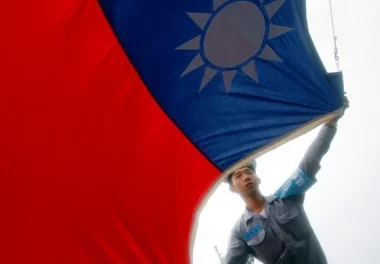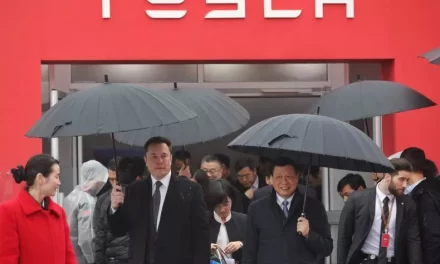BY BRADLEY A. THAYER AND LIANCHAO HAN
In a perilous time for American domestic politics, the rise of the People’s Republic of China indicates that global politics is no better. Historically, American leaders advanced the country’s interests, including identifying threats and difficulties the U.S. confronted. However, the willingness and even the ability of America’s leaders to identify the threat from China changed noticeably after the end of the Cold War because of economics, former Chinese leader Deng Xiaoping’s deception, and the failure of U.S. strategists.
The economic element was the employment of Chinese manufacturing and intellectual labor for the profit of American and other Western businesses. U.S. firms made huge profits, which translated into political influence to sustain the situation. Akin to what Russia’s Vladimir Lenin identified in his classic work “Imperialism,” Wall Street permitted Chinese firms — controlled directly or indirectly by the Chinese Communist Party (CCP) — to raise money on American markets in return for greater profits. This fueled spectacular economic growth in China, allowing it to expand its influence and military power and to challenge the United States.
However, strategy is anterior to economics. After the fall of the Soviet Union and the 1989 Tiananmen Square massacre, Deng understood the CCP could be vulnerable to regime change through U.S. pressure. He recognized that China should “bide its time” and open all of China to Western businesses. By doing so, he would not provoke an attempt to target the CCP from Washington and could establish, first, an interest in China’s economic growth and, second, a dependency upon China to ensure profitable trade and continued profits. That dependency on profits would translate into political influence in Western countries, ensuring that nothing would change until it was too late for the U.S.
In essence, the U.S. allowed China into an economic ecosystem it created, and permitted China to grow and employ its wealth to gain greater influence in America’s politics, economy and society. This was repeated throughout the world, including in key U.S. allied countries such as France, Great Britain, Germany, Italy and Australia.
These events could not have occurred without the failure of American strategic thought. Short-term economic interest bested U.S. strategic interest time and again. Dependency on China contributed to the failure of American strategists to recognize the redistribution of power from the U.S. to China. The best and brightest of America’s national security community failed to identify this as a pernicious problem. Instead, “thought leaders” wrote articles, studies and books to demonstrate how wonderful it was that China and America were growing together, that China was reforming to become a responsible power.
This cant yielded unimaginable payoffs for the CCP. China had invested heavily in U.S. think tanks, media, American Sinologists and universities, to continue its expansion without being checked. Its growth was even welcomed. American strategists who should have seen the danger did not — and were not encouraged or required to do so by their superiors in the military, intelligence community, think tanks or media.
Yet, America can recover if it responds to the CCP’s threat. To accomplish this, Americans must break the dependency on China’s influence at think tanks, universities, philanthropic foundations, publishing houses, media and Wall Street. We must regain our ability to think clearly about the situation.
U.S. businesses and investors must end the dependency. Allowing Chinese entities to raise capital in U.S. markets is self-destructive. Equally important, Americans should question why U.S. firms are in China at all. The Securities and Exchange Commission should better police Chinese entities — including requiring the same transparency from them that American firms must provide. Western governments should ban Chinese entities and other firms that benefit directly or indirectly from forced labor. The tepid reaction of Western corporations and most governments to the genocide of Muslims in Xinjiang is the tolerance of evil, and corporations and governments that permit this to continue should be sanctioned.
Additionally, the U.S. must work with its allies around the world to fight the Chinese communism. Since many U.S. allies are at the forefront of China’s aggression, they must be supported in their efforts to resist Beijing. The CCP’s pressure is simultaneously political and economic — and sometimes military pressure, such as against India, Japan and Taiwan. Some U.S. allies, such as Australia, already have demonstrated the mettle to stand up to China’s aggression. But Taiwan remains under the threat of invasion and should be provided with the resources it needs for a conventional deterrent. The nucleus of states willing to resist Beijing must be expanded and the U.S. must offer its diplomatic, economic and military support.
It’s time to identify the CCP as the enemy it is. The United States has allowed China access to every aspect of American life — something that would have been unthinkable against previous foes such as the Soviet Union, Germany, Italy or Japan. Ending that access is the dispositive strategic issue. It will require leadership and the cooperation of friends and allies to overcome resistance from the academic, business and financial communities.
Thus far, the Biden administration’s actions — including allowing Confucius Institutes to return to American campuses and listing Chinese companies on American exchanges — are turning back the clock to the era when America accommodated China. This will only embolden Beijing and be interpreted as a sign of American weakness and inability to identify and respond to its enemy.
This article first appeared in The Hill on 03/08/21 12:00 PM ET




















